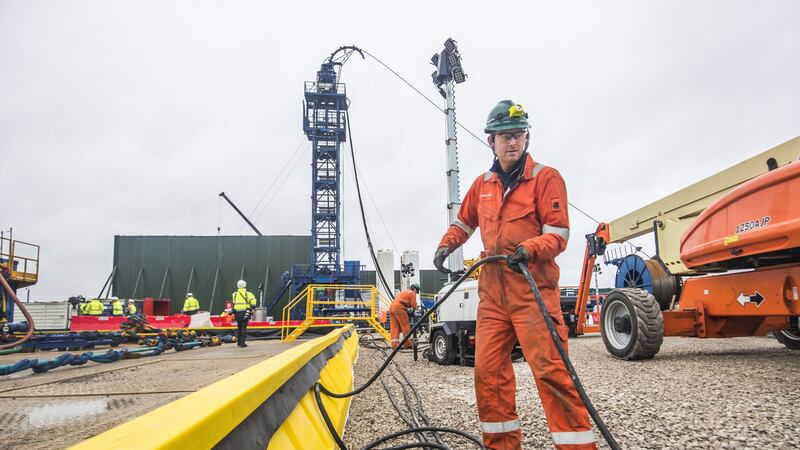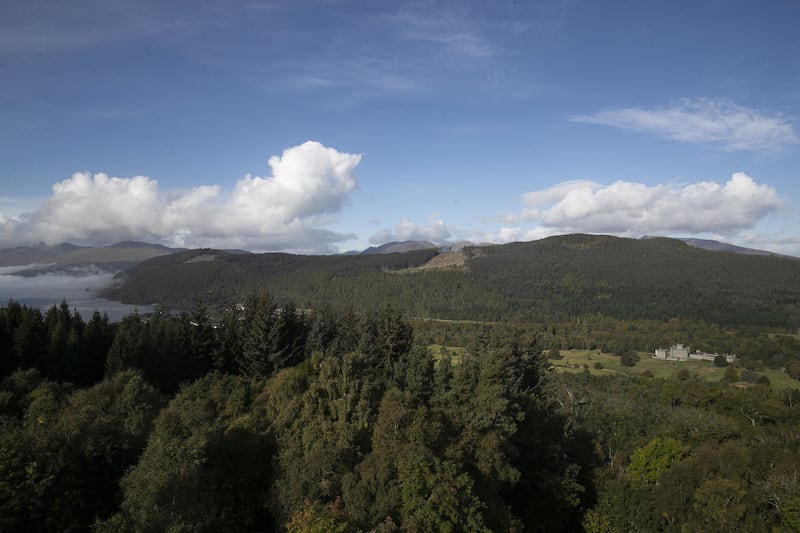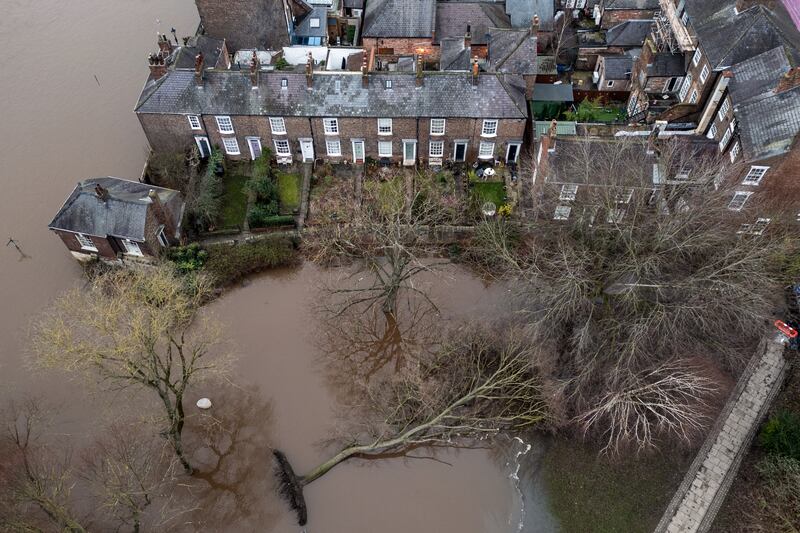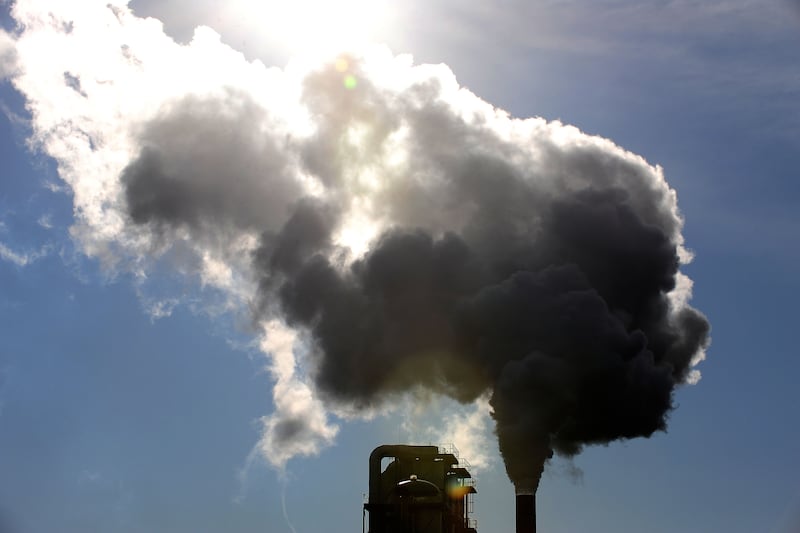Fracking at a gas exploration site in Lancashire has been halted again after another tremor was detected underground.
What is fracking?
Hydraulic fracturing, known as fracking, is a process to extract shale gas. Rock is drilled into and “fractured” before water, sand and chemicals are pumped into it to release gas.
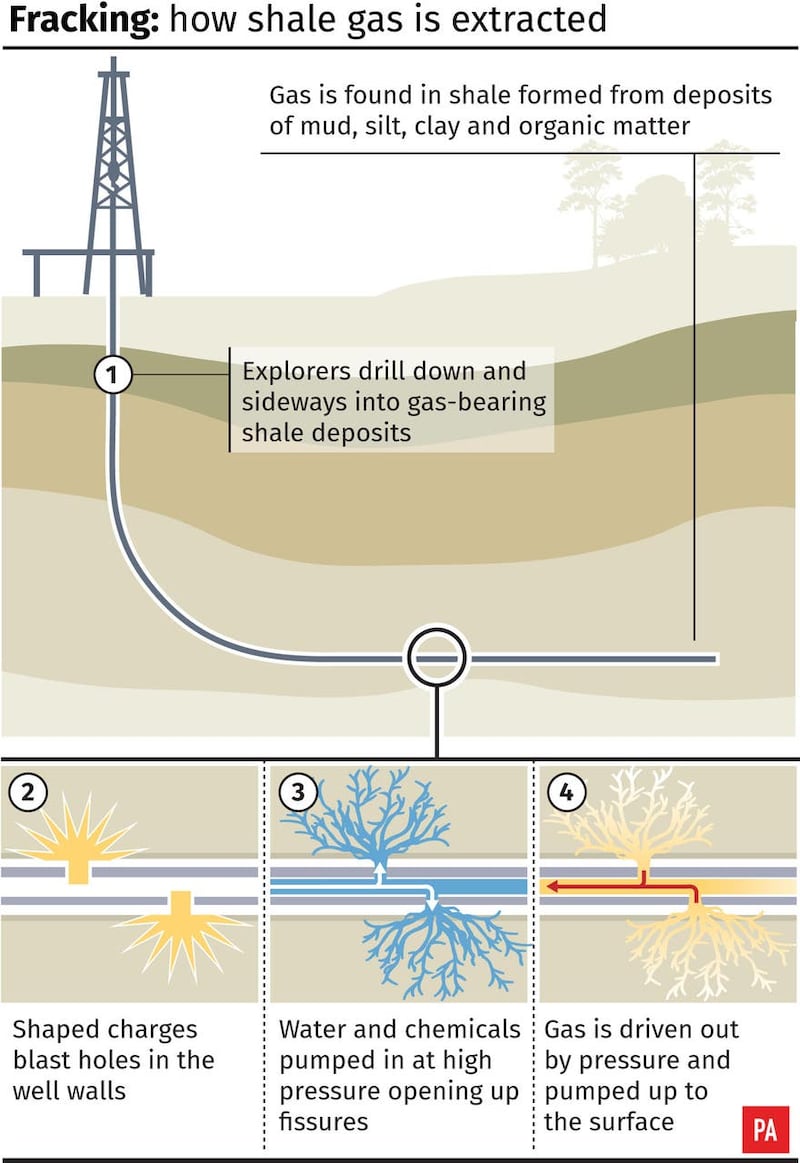
Does it cause earthquakes?
The British Geological Survey (BGS) says hydraulic fracturing is generally accompanied by microseismicity – earthquakes which are too small to be felt. Energy firm Cuadrilla started the process at its site on Preston New Road in Little Plumpton, Lancashire, on October 15 and the BGS first detected a seismic event in the area on October 18.
How big are the earthquakes?
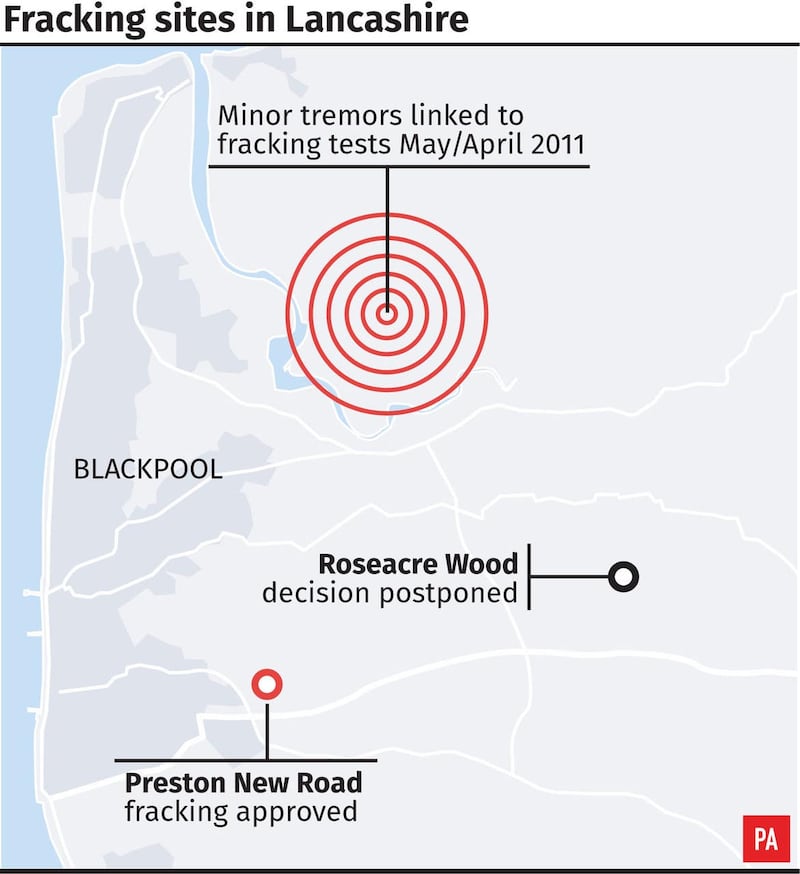
The largest tremor detected at the Preston New Road site was 1.1 magnitude. According to the BGS, earthquakes with a magnitude of less than two are not usually felt and, if they are, it is only by people very close to the earthquake. Earthquakes with magnitudes of less than one are “hardly ever felt”, it says.
In 2011, Cuadrilla stopped hydraulic fracturing at its site in Preese Hall, near Blackpool, after an earthquake of 2.3 magnitude was felt. The BGS said that tremor was around 200 times bigger than the tremor of 0.8 magnitude which was detected at the Preston New Road site on Friday.
How often do these tremors occur normally?
According to the BGS, there are around 10 to 30 earthquakes of 2 magnitude or greater every year in the UK or immediate offshore area. It estimates there are several hundred earthquakes of 1 magnitude or above and several thousand with a magnitude of 0 or higher.
How are they detected?
Updated FAQs on seismicity at Preston New Road, Lancashire, 29 October 2018 https://t.co/Hjyt1ffPSU
— BGS (@BritGeoSurvey) October 29, 2018
The BGS has set up a dense network of temporary seismic sensors in the area around the Preston New Road site to allow it to detect much smaller earthquakes then it is typically able to do.
The BGS permanent network of sensors across the UK is usually able to detect most earthquakes of 2 magnitude or above.
What else can cause earthquakes?
The BGS reports than mining is the most common cause of induced earthquakes. Impoundment of deep artificial water reservoirs and groundwater abstraction are among other activities which can cause earthquakes.
It records that in the 1980s and 1990s, mining events accounted for approximately a quarter of all recorded earthquakes in the UK, but since the decline of mining activity there has been a sharp decrease in the number of events.
